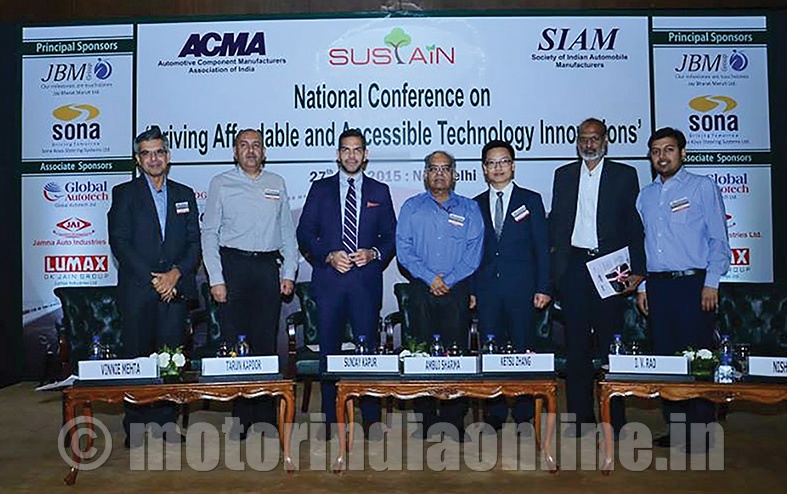With the objective of sensitising the automotive industry on how new technologies can emerge as differentiators in new age vehicles, the Automotive Component Manufacturers Association of India (ACMA) jointly with the Society of Indian Automobile Manufacturers (SIAM), recently organised a national conference on Driving Affordable and Accessible Technology Innovations in New Delhi. The conference focussed on the impact of disruptive technologies and changes in regulatory environment on business models of the vehicle industry and the auto component manufacturers.

Recognising the imperatives of technology and its future implications, Mr. Vinnie Mehta, ACMA Director General, said: “Through this initiative we have tried to provide the industry a perspective on emerging affordable and accessible technologies in the automotive sector. As India catches up with new technology trends such as light weighting, electrification of powertrains, safety and emission norms, the domestic industry will have to evolve to meet the stake-holders’ expectations. The Indian auto component industry endeavours to be among the top five global suppliers in the next few years where technology will be a key driver in differentiating us from our competitors.”
The conference brought together eminent industry players, Government representatives and other stakeholders to discuss the evolving technology trends. Leading automotive players like Maruti Suzuki, Sona Koyo, JBM, KPMG, Lucas-TVS and Visteon Automotive also presented their respective perspective. Besides, there were case studies from the vehicle and auto component manufacturers on topics such as enhancing localization, electric vehicles, vehicular- connectivity, safety and auto electronics and supply chain competencies.
Speaking on the occasion, Mr. Ambuj Sharma, Additional Secretary, Ministry of Heavy Industries (MOHI), observed: “The Government, as part of the National Electric Mobility Mission Plan (NEMMP) 2020, has launched the Faster Adoption and Manufacturing of (Hybrid and) Electric vehicles (FAME) scheme that provides several incentives for R&D and innovation. That apart, the Government has made significant investments in testing & certification facilities across the country. The industry should utilise this infrastructure for moving up the value chain.”
According to the study by KPMG, “Emerging trends and technologies in the automotive sector- Supply chain challenges and opportunities”, the use of electronics in the automotive industry is growing significantly. Considering the growing importance of electronics and connectivity in cars, developing less expensive electronics architecture will ensure greater demand for electronics and enable sophisticated functionalities. Indian software firms will need to play a pivotal role in forming effective partnership with industry stakeholders to create cost-effective electronics solutions and connected vehicles.
“The global auto industry is converging with other industries to develop connected and safer vehicles to enhance in-vehicle experience. OEMs and auto component players in India will have to engineer low-cost solutions without any compromise on quality to make technologies affordable and accessible”, said Mr. Rajeev Singh, Partner and Head, Automotive Sector, KPMG in India.